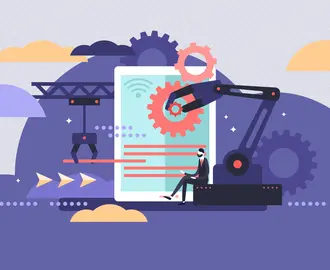Gustavo Pierini, SM ’87, was the distinguished alumni speaker June 8 at the 2017 MIT Sloan MBA Convocation in Boston. Following his speech, Pierini was presented with the Dean’s Award for Excellence and Leadership. His prepared remarks follow.
—
Dean Schmittlein, members of the faculty, proud parents, and class of 2017 graduates: Thank you very much for this honor of speaking to you today. Exactly 30 years ago, I was sitting where you are today. Class of 1987 initiates its reunion today.
I once read that convocation and commencement speeches are students’ last lesson before they set out to pursue their dreams. With that challenge in mind, I decided to share with you two things. One: The most important lesson I learned as an MBA student at MIT and what it might mean to you; and two: The most important lessons I have learned over the past 30 years, and which I wish I had known at my own graduation.
Let me start by saying that MIT Sloan changes your perception of the world, as well as the way that you are perceived by the world. The rigor, perseverance, and grit required to succeed in this special place differentiates and sets you apart in any endeavor that you choose to pursue.
I learned many things in this wonderful place. There has not been a single day in the last 30 years that I didn’t use the analytical, organizational, and communication skills that I learned as a student here. Graduates and parents: rest assured that you have made a wise investment, and not just from a financial standpoint. Students, you invested in yourself and you will never be the same. Today you are a much more valuable person, for you and for the society, than the one you were two years ago.
In addition to all the expected lessons learned in and out of the classroom, the essential takeaways of the student experience, I learned a most important lesson while at MIT. A lesson in humility. Yes, humility.
Let me start by saying that I am Argentinean. The Latin Americans in the room are probably familiar with the reputation that Argentineans have — and it’s not necessarily a very positive one. In the last 100 years, Argentineans lost a good chunk of their wealth and their leading position in the Americas, and yet, they didn’t lose their cavalier attitude. They have a tendency to boast about their soccer teams, their meat, their wine, etc. — you get the picture. I suspect that it was an Argentinean who first said: “I used to be conceited, but now I’m perfect.”
When I received my acceptance letter from Sloan 32 years ago, I was ecstatic; it was a dream come true. Little did I know at the time that I was in for a deep and profound shock. As a student in the University of Buenos Aires, School of Engineering, I was used to being a top achiever and I grew accustomed to this coveted status. Everything always seemed fairly simple and straightforward. And then I came to Sloan. Despite my relentless efforts, I was unable to finish any of my exams here, regardless of the subject.
At first, I didn’t understand what was going on. It took some time for me to understand two things. First, exams are designed not to be finished by 99 percent of the population, otherwise it would be impossible to differentiate students’ performances. Second, and much more important, while you can be number one in your little corner, it’s unlikely that you’ll hold that same position at Sloan where you’re studying with the cream of the crop of the world.
I had to exert an enormous amount of effort to remain among the best in the class. This fact was instrumental to push my performance to levels that I had never before envisioned.
How on earth could I have continued to be arrogant once I had met people — students and professors alike — that were so competent and accomplished? This lesson, which I learned the hard way, profoundly changed the way I relate to people since then. Simply stated, Sloan made a miracle happen: it had succeeded in teaching a lesson of humility to an Argentinean.
As a general rule, and your takeaway, arrogance is a dangerous character trait that will get you nowhere. It turns people off and impedes cooperation. Yet, it is very common to see that type of behavior among recent graduates. Avoid that at all costs. If you are good, then prove it. You don’t have to resort to arrogance. Let your work speak for yourself.
Before delving into the most important lessons that I have learned in the past 30 years, let me talk for a minute about the most critical decision you are facing right now: deciding what you want to do with your professional life.
I have often heard recent graduates describing this election as the choice between two separate paths:
- either you go after your dreams and the things you love doing, which can be creating value through difficult problem solving, catering to unmet needs or capturing untapped opportunities; or
- you chase money and try to become rich quickly.
This divergence doesn’t exist, it’s a mirage. Trying to get rich is life’s biggest booby trap. Success (and the money that might come with it) is the result of a job well done — it’s the consequence of a nice story of value creation for you and for the society as a whole.
To be successful in anything you undertake, you have to put in long hours, sometimes from dawn to dawn. Even a small business is very demanding of your time; it’s going to eat up all your time. But if you are doing something that you dream about, you will enjoy it. On the other hand, if you are doing something just to get rich, you are going to lose your heart.
Now that I have stated that success is a consequence of pursuing your interests, let me go over the lessons that I have learned, and which have led to exceptional value creation (and not only financial):
1. You are worth the size of the problems you solve.
(What I say in this lesson is also valid for catering to unmet needs and capturing untapped opportunities.) You should chase and focus on solving big problems. Solving problems related to a small or a large amount of resources might require the same amount of effort. However, solving problems related to a large amount of resources is just much more valuable. Therefore, focus on large complex problems and you will reap the benefits of its solution.
That is what my company, Gradus, is all about: broadly stated, we solve large and complex productivity problems.
2. Focus is critically important.
You can do anything you want, but not everything.
3. Successive approximation is better than delayed perfection.
Most people wait. They believe they can only start after they have got enough resources, analyzed all the possibilities and obtained all the answers. By the time they are ready, the opportunities are gone.
Oftentimes, it’s best to start with any answer, albeit not the best one, rather than waiting. So get started, try and get better by continuing to try.
Every time I solve a problem and I look backwards, I always find that there was a better way of doing it, a more elegant one. Unfortunately, that better way is only obvious once I have finished.
To put this into context, if Sir Isaac Newton had waited to announce his theory of gravity until he had considered all variables, Albert Einstein would have never developed his general theory of relativity.
4. Be prepared to make controversial or unpopular decisions.
You are not there to please everybody, and you don’t have to be loved by everyone. Avoid the tendency to procrastinate that type of decisions.
5. Never be satisfied.
Set goals that exceed your current capabilities. After you achieve a goal, get ready for the next challenge. You need to aim beyond what you think you and your team are capable of, as it’s the only way to really understand what you are really capable of. Then, start all over again.
6. Never accept excuses.
People make excuses for many reasons:
-
They are afraid to take risks.
- They tried and failed or they never even tried.
Attaining success takes practice and persistence in order to overcome the limitations people create in their own minds.
Rather than listening to their excuses, ask them how and when he or she is going to get the job done.
7. Learn to say thank you.
Let me tell a brief, but exemplary story.
Charles Plumb was a U.S. Navy jet pilot in Vietnam. After 75 combat missions, his plane was destroyed by a surface-to-air missile. Plumb ejected and parachuted into enemy hands. He was captured and spent six years in a communist Vietnamese prison. He survived the ordeal and now lectures on lessons learned from that experience.
One day, when Plumb and his wife were sitting in a restaurant, a man at another table came up and said, “You’re Plumb! You flew jet fighters in Vietnam from the aircraft carrier Kitty Hawk. You were shot down!”
“How in the world did you know that?” asked Plumb.
“I packed your parachute,” the man replied. Plumb gasped in surprise and gratitude. The man pumped his hand and said, “I guess it worked!” Plumb assured him, “It sure did. If your chute hadn’t worked, I wouldn’t be here today.”
Plumb couldn’t sleep that night, thinking about that man. Plumb said, “I kept wondering what he might have looked like in a Navy uniform: a white hat, a bib in the back, and bell-bottom trousers.” He wondered how many times he might have seen him and not even said: “Good morning, how are you?” or anything because, you see, Plumb was a fighter pilot and the other man was just a sailor.
Plumb thought of the sailor and the countless hours the man had spent on a long wooden table in the bowels of the ship, carefully weaving the shrouds and folding the silks of each chute, holding in his hands each time the fate of someone he didn’t know.
Sometimes, in the daily challenges that life gives us, we miss what is really important. We may fail to say hello, please, or thank you, congratulate someone on something wonderful that has happened to them, give a compliment, or just do something nice for no reason.
8. Surround yourself by the best people you can.
Let me illustrate this point with an example. Jorge Paulo Lemann, the richest man in Brazil, before succeeding with his Banco Garantia, he broke two trading houses. When asked what he had made different the third time, he said: “The third time I used exactly the same business plan; the difference the third time was that I surrounded myself with two wonderful partners: Marcel Telles and Beto Sicupira, that made the difference.”
9. Celebrate your wins but don’t get complacent.
The most dangerous poison is the feeling of achievement.
I could go on and on, but I think that I have already shared with you the most important lessons that I have learned during my 30 years as a practitioner, and which were often learned the hard way.
Now, as I approach the end of my speech, I want to let you know what my desires are for all of you as you start the next chapter in your life.
My first desire is that each one of you make your best attempt at achieving your highest potential as productive members of society, and that you feel self-fulfilled, satisfied, and grateful for the opportunity to make such honest attempts and for the achievements that may ensue.
My second desire is that you make us all proud of your belonging to the MIT community, our alma matter.
For my third desire, I’ll just quote — free translation done by myself — the last verse of the poem “Time” written by the Brazilian poet Carlos Drummond de Andrade.
TEMPO
Gostaria de lhe desejar tantas coisas.
Mas nada seria suficiente ...
Então, desejo apenas que você tenha muitos desejos.
Desejos grandes e que eles possam te mover a cada minuto,
ao rumo da sua FELICIDADE!
TIME
I would like to wish you so many things.
But nothing would be enough …
Therefore, I just wish that you have many wishes.
Big wishes that can move you forward at each minute,
Towards your HAPPINESS!
Class of 2017: Good luck and go for it, and always remember two things. One: Don’t forget to say thank you to the person that folds your parachute, and two — even more important: Be humble.
Again, thank you for the honor of allowing me to speak to you in such an important occasion.



